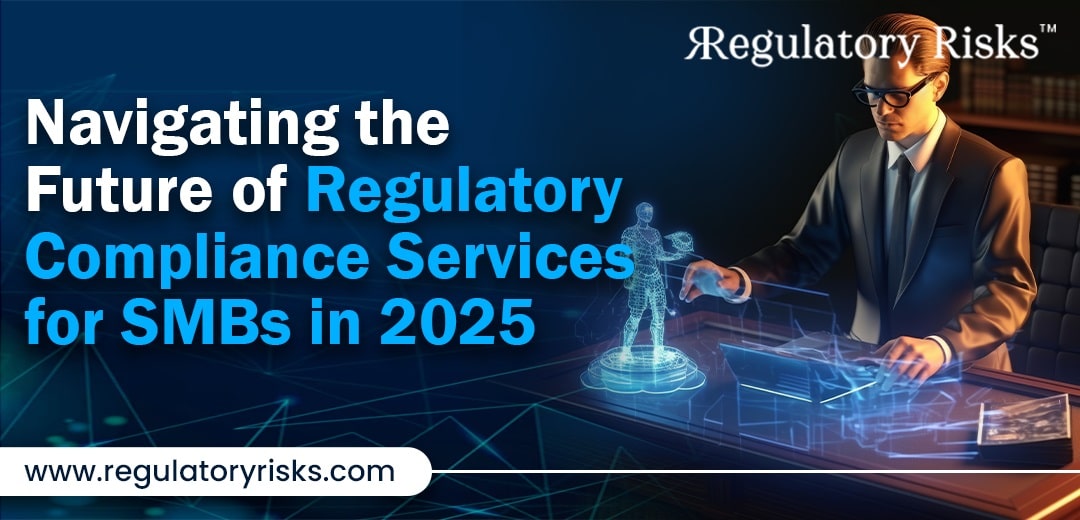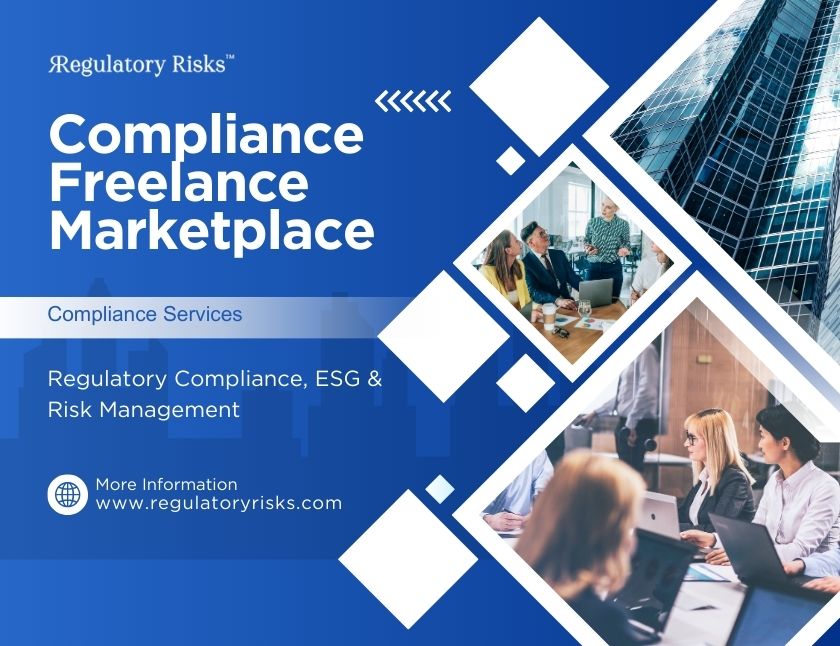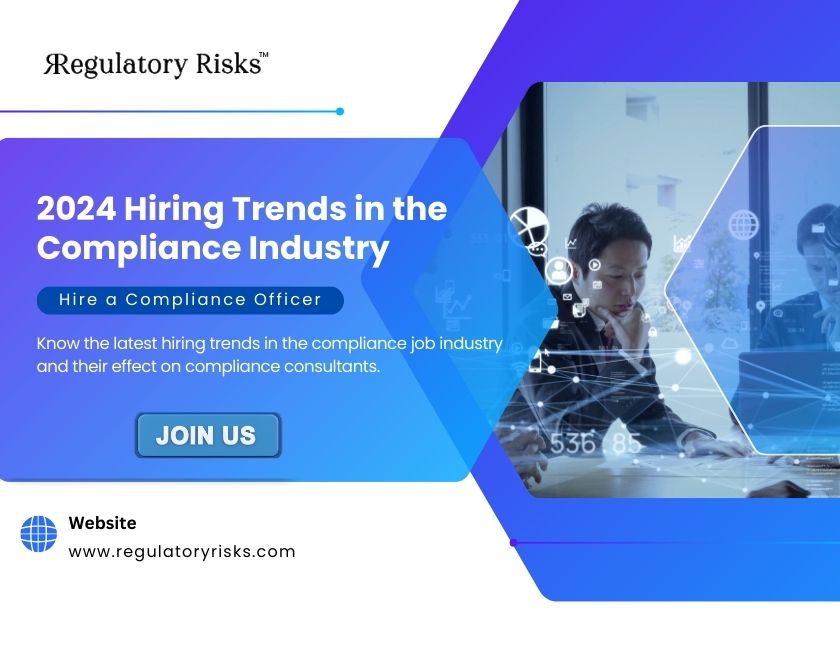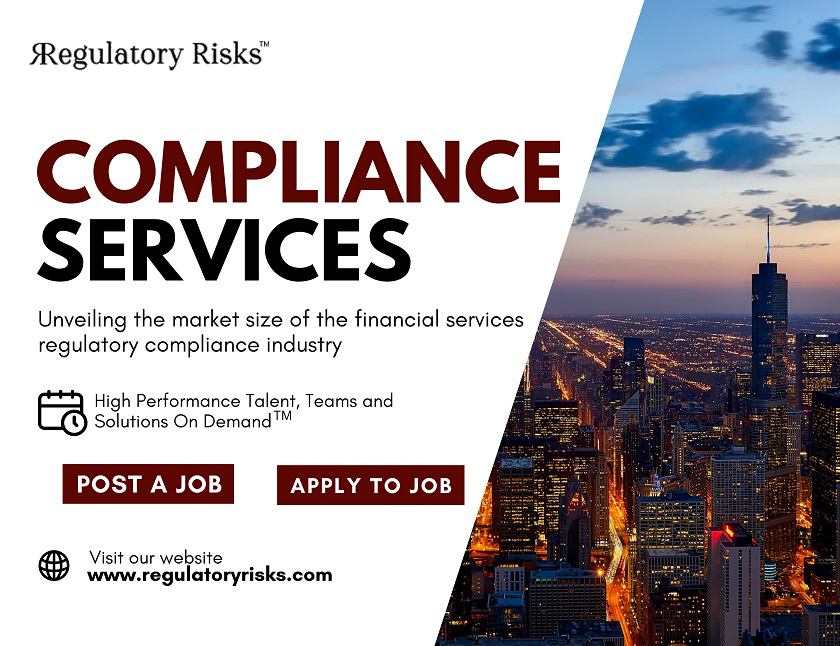The landscape of regulatory compliance is undergoing a profound transformation, thanks to advances in artificial intelligence (AI) and automation. Small and medium-sized businesses (SMBs) across industries, from financial services to crypto and digital assets, are rethinking their approach to compliance. With these technologies making compliance tasks more efficient, cost-effective, and accurate, many wonder: Will AI cause job losses in regulatory compliance? What opportunities might emerge for those in the field? Let's explore how the future of compliance is shaping up and what professionals and businesses can expect in 2025 and beyond.
How AI is Transforming Regulatory Compliance for SMBs
AI and automation are already revolutionizing how SMBs handle regulatory obligations. AI-driven tools can track financial transactions, flag suspicious activities, and ensure businesses follow complex regulations seamlessly. These tools can monitor large amounts of data in real-time, far faster and more accurately than human teams could. For SMBs with limited resources, this offers a game-changing opportunity to meet compliance standards without the need for a large in-house compliance department.
Potential Job Losses and Opportunities
The Reality of Job Displacement
It's undeniable that AI and automation are replacing certain routine compliance tasks. Data entry, transaction monitoring, and initial risk assessments are among the first to be automated. SMBs looking to reduce costs may turn to AI to handle these tasks, potentially downsizing their in-house compliance teams.
New Opportunities in the Compliance Space
However, the picture is not all gloomy. While AI handles the repetitive tasks, human compliance professionals will still be needed for complex decision-making and ethical considerations. As the demand for strategic thinking and interpretation of regulations grows, compliance professionals may find new roles in consulting and leadership.
AI as an Enabler, Not a Replacement
It's important to recognize that AI is not here to replace human professionals entirely—it's here to help. AI serves as a tool that augments human expertise. While it can efficiently process and flag issues, human compliance officers are still crucial for interpreting the results, making judgments, and ensuring ethical standards are met.
The Rise of Regulatory Compliance Consulting
For those concerned about job losses, there's good news: regulatory compliance consulting is on the rise. Many SMBs are turning to specialized consultants to navigate the increasingly complex regulatory environment. This presents a valuable opportunity for professionals looking to transition out of in-house roles into consulting.
Freelance Marketplaces and the Future of Compliance Consulting
Freelance platforms are playing a vital role in connecting SMBs with compliance consultants. SMBs can hire consultants on a project basis, giving them the flexibility to scale their compliance efforts without the need for full-time hires. Consultants, on the other hand, can work with multiple clients across industries, expanding their knowledge and expertise.
The Regulatory Compliance Job Market in 2025
Global Demand for Compliance Expertise
As regulations evolve, the demand for skilled compliance professionals is expected to remain strong in 2025. Sectors such as financial services, crypto, gaming, and technology are seeing increased scrutiny from regulatory bodies. This means that professionals who can navigate complex regulatory frameworks will be in high demand.
Regional Insights
USA: Compliance consultants are in demand due to strict regulations from agencies like the SEC and CFTC.
UK: Post-Brexit regulations present opportunities for consultants with expertise in both UK and EU frameworks.
EU: GDPR and MiFID continue to drive demand for compliance professionals.
UAE: The rise of fintech and blockchain creates a need for consultants familiar with both Western and regional regulations.
Hong Kong & Singapore: These financial hubs offer high earning potential for consultants with knowledge of local and international regulations.
Australia: Increased scrutiny in gaming and financial sectors drives demand for specialized compliance services.
Earnings Potential for Regulatory Compliance Consultants
Factors Influencing Earnings
Several factors impact a consultant's earning potential, including their experience, geographic location, and the complexity of the services they offer. Consultants working in highly regulated industries or financial hubs typically command higher fees.
Estimated Earnings by Region
USA: $100,000 to $200,000 annually.
UK: £70,000 to £150,000 annually.
EU: €80,000 to €160,000 annually.
UAE: AED 350,000 to AED 700,000 annually.
Hong Kong: HKD 800,000 to HKD 1,600,000 annually.
Singapore: SGD 100,000 to SGD 200,000 annually.
Australia: AUD 90,000 to AUD 180,000 annually.
The Importance of Regulatory Compliance Services for SMBs
SMBs face significant challenges in meeting regulatory requirements, and non-compliance can lead to hefty fines and reputational damage. Regulatory Compliance Services for SMBs help businesses navigate complex regulations and avoid costly penalties.
Leveraging Freelance Marketplaces for SMB Compliance Needs
Freelance marketplaces provide a cost-effective solution for SMBs to access compliance expertise. Hiring consultants through these platforms allows SMBs to scale their services according to their needs, making it a flexible option for growing businesses.
Preparing for the Future of Regulatory Compliance
To stay ahead, professionals and SMBs alike must embrace AI, automation, and continuous learning. Building a strong professional network and staying updated on regulatory changes will be key to long-term success in the compliance field.
Building a Strong Network for Success
Networking through industry events, professional organizations, and freelance marketplaces can open doors to new opportunities and enhance credibility in the regulatory compliance space.
Adapting to Evolving Regulatory Landscapes
With regulations constantly changing, both SMBs and consultants need to remain agile. By embracing new technologies and continually updating their skills, they can stay ahead of the curve and thrive in this evolving landscape.
Conclusion: The Future of Regulatory Compliance in 2025 and Beyond
AI and automation are transforming regulatory compliance, but they are also creating new opportunities. For SMBs, leveraging regulatory compliance services is crucial to navigating complex regulations. Meanwhile, professionals in the field can thrive by embracing new technologies and adapting to the evolving job market.




